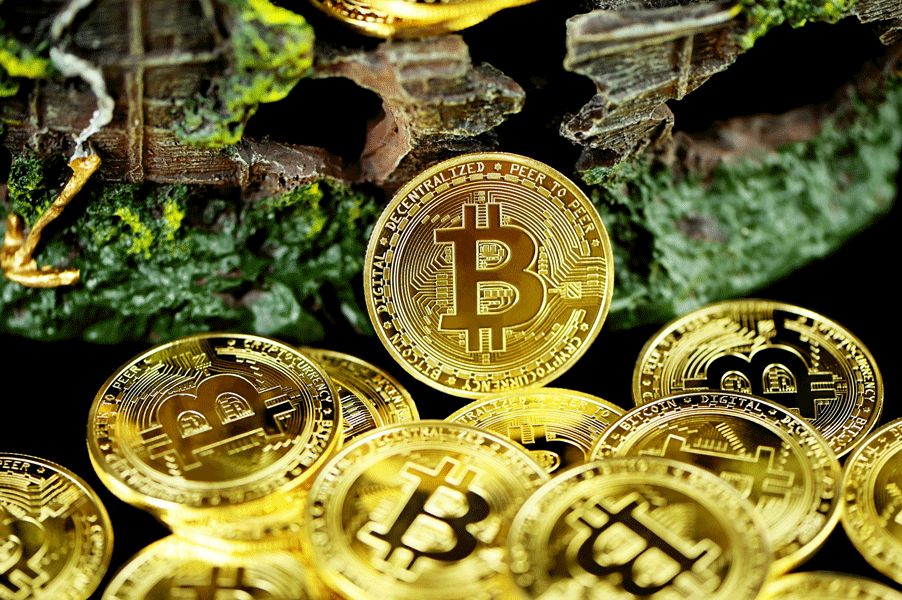Fast forward to the present day, and you don’t need to be a finance or tech expert to know what cryptocurrencies are — or to invest in them. This year, in particular, was a big one for the digital currency as its total market cap surpassed $2trn for the first time.
Although news headlines and social media discourse sometimes make it seem like anyone and everyone is getting involved with crypto, this digital currency also has its critics. One notable figure to recently dim the sparkle of this enticing asset class was like Governor of the Bank of England, Andrew Bailey.
“Cryptocurrencies have no intrinsic value. That doesn’t mean to say people don’t put value on them, because they can have extrinsic value. But they have no intrinsic value,” he said during a press conference in London in May. “I’m going to say this very bluntly again. Buy them only if you’re prepared to lose all your money.”
His comments understandably attracted a lot of attention, but whether investors will take any notice is another matter. What’s more, the Bank of England isn’t exactly an institution anyone would expect to support plans for a decentralised currency. Did Bailey have ulterior motives when he issued this warning, or do his words ultimately come from a place of truth?
Is the BoE’s hostility predictable?
Bailey’s hostility to cryptocurrency is hardly surprising when you consider what it is and what it represents. These decentralised digital currencies operate outside the parameters of the current prevailing financial systems. In fact, this is one of the main reasons that crypto has its supporters. It is not created or regulated by a government body, which means that its value is not impacted by how central banks respond to social, economic or political developments, or by a particular bank’s monetary policy. The blockchain technology required also makes it very difficult for an individual to corrupt or manipulate cryptocurrencies. All in all, cryptos aim to prevent the risk of a single entity gaining too much power — something particularly enticing in the wake of the global financial crisis of 2007-2008.
Given that the nature of cryptocurrency is completely at odds with the financial systems we have today, perhaps it was to be expected that someone like Bailey would stand in opposition to it. After all, if Bitcoin became the norm in terms of how we make payments, there would be no need for a Bank of England or any other central bank for that matter.
It’s also interesting for Bailey to state that cryptocurrencies “have no intrinsic value” when warning people against investing in them. Although this is true, fiat currencies including the pound sterling have no intrinsic value either. In these cases, the value comes from the trust citizens place in the respective governments and because the value is maintained and agreed upon by all the parties involved. And while the value of cryptocurrencies can be manipulated (just look at how quickly Dogecoin skyrocketed), fiat currencies can also be immediately devalued. For example, a central bank may print more money.
Should investors be wise to crypto uncertainty?
Even though some may be sceptical about Bailey’s motives, there’s no denying that there are some issues crypto investors certainly need to bear in mind.
Bailey is right to point out the extrinsic value of cryptocurrencies. When there are only a certain number of bitcoins in existence, it goes without saying that people will place extrinsic value on it as an asset. The problem is that unlike other assets, there is no practical application when it comes to cryptos — they merely exist to be traded. Plenty of investors decide to put money into cryptocurrencies simply out of ‘Fear of Missing Out’. Gambles can and do pay off, but it’s important to remember that ultimately that’s all crypto trading is — a gamble on an asset offering nothing in material terms.
Huge volatility
Many people are attracted to cryptocurrencies as there is a chance of racking up impressive profits in a short space of time. Obviously, this also means it’s very possible that an investor could lose just as much, just as fast. In this sense, Bailey is speaking some sense when he says “prepare to lose all your money” because that could happen. In February 2021, Bitcoin fell by $10,000 in just 19 hours, followed by another steep drop in May where Bitcoin’s value halved in only nine days. This kind of volatility can be incredibly costly. That said, perhaps it is unfair to single out crypto when all investments ultimately come with risk. Whether it’s crypto or another type of financial instrument, the same rules apply. Investors should always do their research and exercise due diligence, and most importantly, never risk money they can’t afford to lose.
Regulatory issues
The potential positives of cryptocurrency are clear, but the downsides are just as obvious. One of the main problems with such a new, exciting yet complicated technology is how easy crypto can be exploited for criminal purposes such as money laundering and fraud. This makes regulation very important and necessary. Gary Gensler, the newly appointed head of the US Securities and Exchange Commission (SEC), has emphasised the need for greater regulatory oversight of exchanges trading crypto assets in order to instil more confidence. Unfortunately, crypto is also very hard to regulate. Investors and consumers need to be protected, but governments don’t want to bring in measures that end up constricting innovations that could bring huge benefits.
In conclusion, there is a lot of uncertainty surrounding cryptocurrency exchanges. For this reason, we don’t currently offer cryptos to our customers at Trade Nation. However, this may change if there were to be regulatory developments. Ultimately, investors must be aware of all the unknowns, be braced for high risk and volatility, and only invest within their means.



